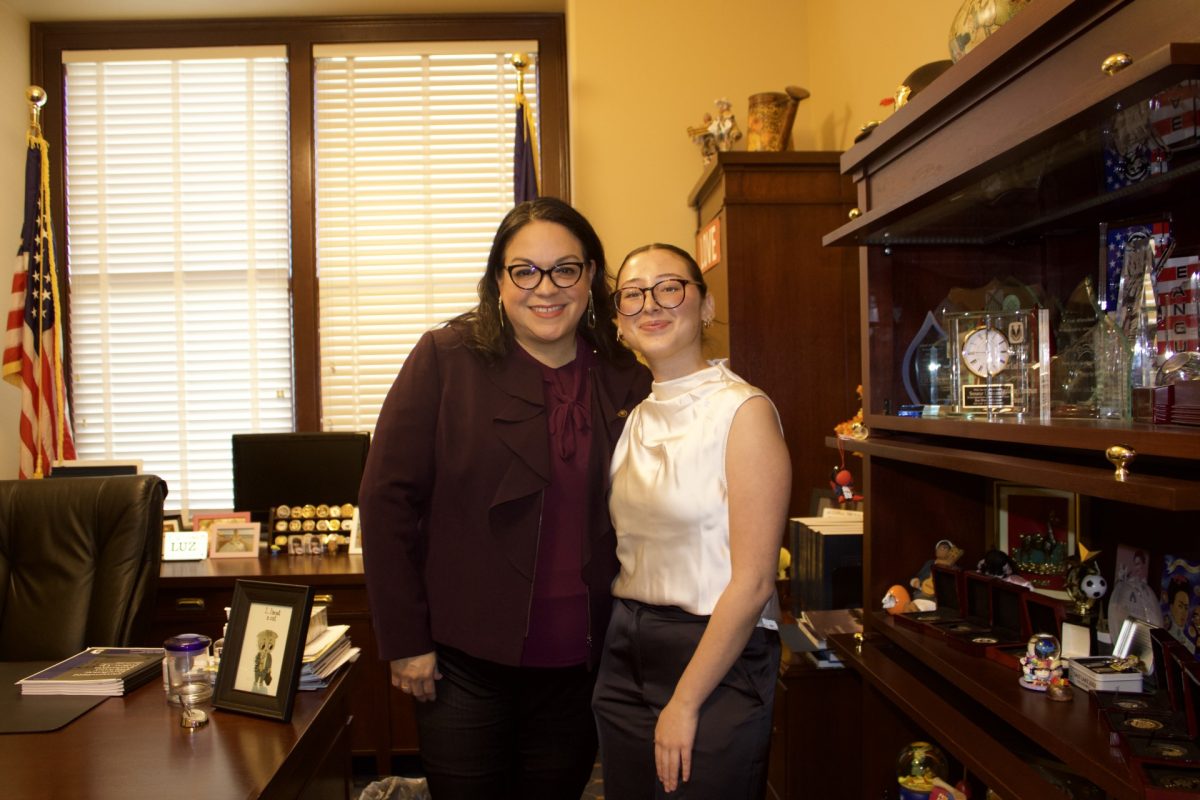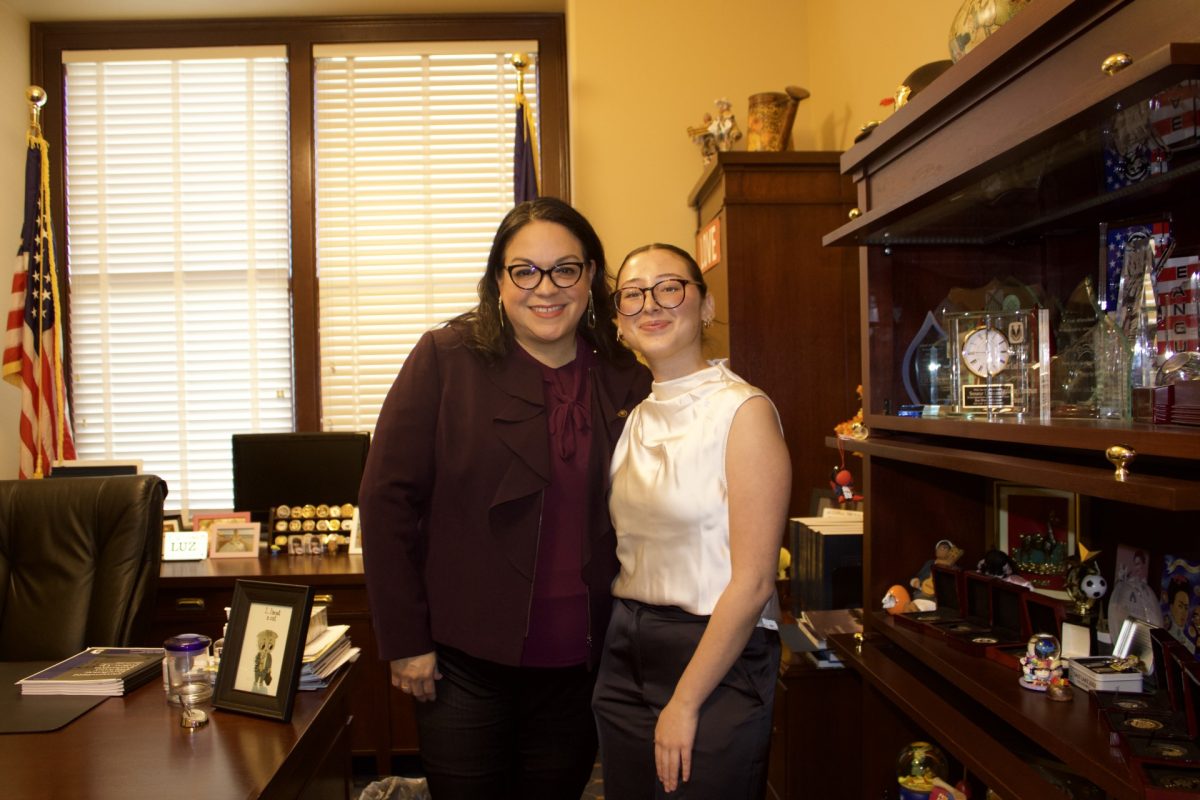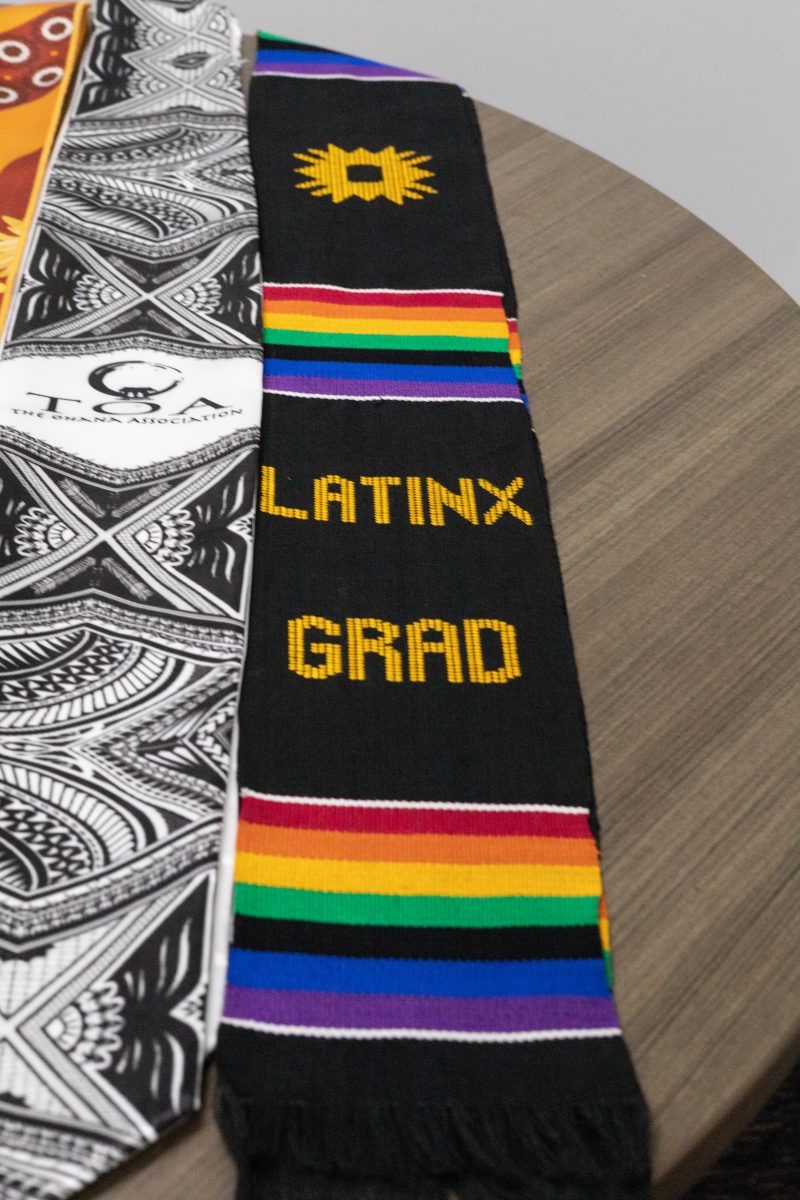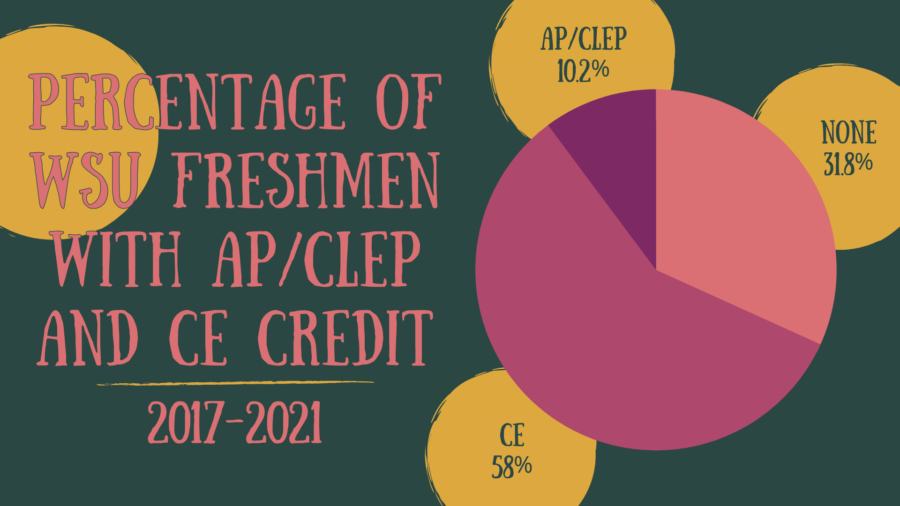London-based author and futurist Cennydd Bowles called attention to the ethical challenges facing tech companies, governments and its citizens as society progresses into the next decade, becoming much more dependent on tech, to Weber State University students and staff on Oct. 28 as part of the Peterson Speaker Series.
According to Bowles, the early 2010s were a period of “techno-utopianism,” featuring near-limitless confidence in the power of technology to positively change humanity, which includes the emergence of social networks: including Twitter, Facebook and Instagram.

“There was astonishingly rapid progress, particularly around mobile technology,” Bowles said. “The promise was the world at your fingertips.”
The Arab Spring, a series of anti-government protests and uprisings that occurred in the Middle East in late 2010, justified Bowles’ claim. Technology allowed connection all over the world during the protests.
However, before the “techlash” against tech companies by their consumers, social network firms always believed that increased networking and communication between the world’s citizens would be beneficial for global change.
Bowles said the techlash began to occur in the second half of the 2010s, once consumers started becoming aware of problematic occurrences of data and privacy leaks. This includes hacks and discrimination against minority groups and their voices, which have led to the public further questioning the security of these tech firms.
Privacy and national security issues involving tech have also come to the forefront of political discussion.
The repeated appearances of Facebook CEO Mark Zuckerberg in front of U.S. congressional panels and online privacy laws in Europe demonstrate that governments are concerned about big tech companies’ power over their citizens’ information.
The 2020s are promising increased scrutiny towards tech giants, in a world where many individuals can’t help but feel resignation and helpless in the face of tech’s power.
Bowles claims this is a result of individuals’ feelings toward relying on technology in their day to day lives and how they would manage if these tech firms didn’t exist.

“There is an acceptance and acknowledgment by the public that there are going to be damages in the technology that we use,” Bowles said. “It’s going to exploit us in some kind of way.”
Despite this claim, individuals are still intent on buying new and smart technology.
According to Bowles, this suggests that the public still sees technology’s value and, paradoxically, that they feel a lack of power and agency if they don’t have the newest tech.
Bowles then presented solutions to these issues. He believes tech companies should stop their “apology tours” and focus on change and improvement.
“Those who got us into the mess are not necessarily the best people to get us out,” Bowles said. “Let’s get past the gnashing and lamentations and focus on real progress.”
Bowles also believes tech companies should stop hiring high-profile business leaders to run their ethics boards, as it only serves as a public relations move. He thinks low-profile people, insulated from the pressure of a public profile, are better suited to run a successful ethics board.
In addition, tech companies need to get out of the “technocracy trap,” or the idea that only tech can solve tech problems — he believes that technocracy should not replace democratic decision-making.
“It cannot be right that people in power, including these elite technologists, should always make the decisions about the future,” Bowles said. “They will just reinforce the status quo that afforded them that power.”
The monopolistic power of tech giants has made it impossible for a free market to discipline bad actors in the tech industry. Bowles claims consumers have no alternatives, making it impossible for an ethical market to exist.
Bowles hopes governments will introduce new regulations to protect consumers’ privacy and anticipates that tech firms will diminish possible harms before that occurs.
Lastly, Bowles hopes that tech firms let go of their “faux neutrality,” which equates voices of hate and extremism with constructive dialogue. However, he also recognizes that over-regulation will be counterproductive.
“We need to find a way to make ethics a part of the way we approach our entire world,” Bowles said. “Not just a checklist.”
WSU student Jon Lauritzen said Bowles made a lot of promising ideas, which made him feel optimistic about the way tech firms will become more regulated.
“There is a lot of room for growth there,” Lauritzen said. “I like the way he was able to congeal those down. We need to look more at what we should do less. We are often too focused on what we should be doing more.”
Dr. Luke Fernandez, who helped organize the lecture, hopes Bowles’ presentation will help attendees think more deeply about their interactions with tech.
“We often like to think that the tools we use are neutral,” Fernandez said. “Just as we shape our tools, they ultimately shape us. Technology shapes us. We need to pay attention to its design, especially the ethical choices we make when we design it.”



















